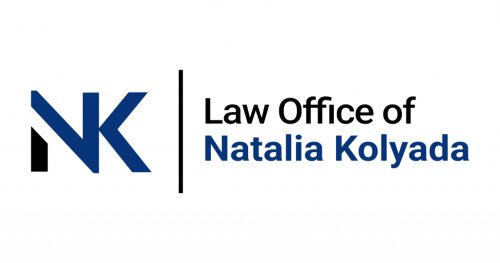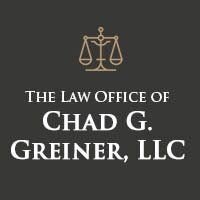Best Divorce & Separation Lawyers in Georgia
Share your needs with us, get contacted by law firms.
Free. Takes 2 min.
Free Guide to Hiring a Family Lawyer
Or refine your search by selecting a city:
List of the best lawyers in Georgia, United States
About Divorce & Separation Law in Georgia, United States
Divorce and separation law in Georgia refers to the legal process of ending a marriage or establishing formal separation between spouses. Georgia recognizes both divorce and separate maintenance actions, offering options for couples who wish to end or redefine their marriage. Divorce legally terminates the marital relationship, while separate maintenance allows spouses to live apart and resolve important issues without ending the marriage itself. The courts in Georgia oversee property distribution, child custody, spousal support, and other matters connected with divorce and separation, aiming for fair outcomes for both parties.
Why You May Need a Lawyer
Many people facing divorce or separation in Georgia benefit from consulting with a qualified attorney. Common situations where legal guidance is valuable include complex division of property or debt, high conflict custody disputes, negotiations involving child or spousal support, and cases where domestic violence or protective orders are involved. A lawyer can help you understand your rights, represent your interests in court, ensure proper paperwork is filed, and work toward the best possible outcome during a challenging time.
Local Laws Overview
Divorce and separation in Georgia are governed by state statutes and local court rules. Georgia is a no-fault divorce state, meaning you do not have to prove wrongdoing to file for divorce - stating that the marriage is "irretrievably broken" is sufficient. Georgia also provides for fault-based divorce on grounds such as adultery, desertion, or cruelty. To file for divorce, at least one spouse must have lived in Georgia for six months prior to filing. Georgia courts address division of assets and debts using "equitable distribution", which seeks a fair (though not necessarily equal) allocation. Child custody decisions are based on the best interests of the child, considering various factors like parental fitness and the child’s needs. Child support is calculated using state guidelines. In cases of separation, Georgia allows for "separate maintenance" actions that resolve important issues without ending the marriage.
Frequently Asked Questions
What are the basic requirements to file for divorce in Georgia?
One spouse must have been a resident of Georgia for at least six months before filing. The divorce petition is filed in the Superior Court in the county where your spouse lives or in your own county if your spouse has moved out of state.
What does "no-fault" divorce mean in Georgia?
A no-fault divorce means that you do not need to prove your spouse did something wrong to get a divorce. In Georgia, you can state that the marriage is irretrievably broken with no chance of reconciliation.
How is property divided in a Georgia divorce?
Georgia uses equitable distribution, which means property and debts are divided fairly, though not always equally. The court considers each spouse's financial situation and contributions to the marriage.
Can I get alimony or spousal support in Georgia?
Yes, in some cases. The court may award temporary or permanent alimony based on the needs of one spouse and the other spouse’s ability to pay, considering factors like the standard of living, length of the marriage, and each spouse's contributions.
How is child custody decided?
Custody is determined based on the best interests of the child, considering factors like each parent’s ability to care for the child, the child's relationship with each parent, and any history of family violence or substance abuse.
How is child support calculated?
Child support in Georgia is based on a formula that considers both parents' incomes and the number of children, along with health insurance, childcare costs, and other relevant expenses.
What is separate maintenance, and how does it work?
Separate maintenance is Georgia’s version of legal separation. It allows spouses to live apart and settle issues like child support or custody without officially divorcing. It does not end the marriage.
Do I have to go to court for a divorce in Georgia?
Most divorce cases require at least one court appearance. However, if both spouses agree on all issues and file the necessary paperwork, the process can be much simpler and faster.
How long does it take to get divorced in Georgia?
The minimum waiting period after filing for divorce is 30 days, but most cases take longer, especially if there are disputes over property, custody, or support.
Can I handle my divorce without a lawyer?
Yes, it is possible to file for divorce without a lawyer, especially in uncomplicated cases without children or significant assets. However, legal guidance is highly recommended if your case involves disagreements or complex matters.
Additional Resources
- Georgia Superior Court Clerk’s Cooperative Authority: Provides court information and divorce forms. - Georgia Legal Aid: Offers free legal information and resources specific to divorce and family law. - Georgia Department of Human Services, Division of Child Support Services: Assists with child support matters. - Local county bar associations: Many offer lawyer referral services or information clinics. - Domestic violence shelters and advocacy groups: Support victims in need of protective orders or emergency assistance. - Family law self-help centers in major Georgia counties.
Next Steps
If you are considering divorce or separation in Georgia, start by gathering important documents such as financial records and information about your children. Think carefully about your goals concerning property, custody, and support. If your situation is complex or contested, or if you feel unsure of your rights, reach out to a qualified family law attorney in your area. Many attorneys offer initial consultations to help you understand your options. Use local resources like legal aid organizations and court self-help centers to assist with forms or questions. Taking the time to seek professional guidance puts you in the best position to protect your rights and interests throughout the divorce or separation process.
Lawzana helps you find the best lawyers and law firms in Georgia through a curated and pre-screened list of qualified legal professionals. Our platform offers rankings and detailed profiles of attorneys and law firms, allowing you to compare based on practice areas, including Divorce & Separation, experience, and client feedback.
Each profile includes a description of the firm's areas of practice, client reviews, team members and partners, year of establishment, spoken languages, office locations, contact information, social media presence, and any published articles or resources. Most firms on our platform speak English and are experienced in both local and international legal matters.
Get a quote from top-rated law firms in Georgia, United States — quickly, securely, and without unnecessary hassle.
Disclaimer:
The information provided on this page is for general informational purposes only and does not constitute legal advice. While we strive to ensure the accuracy and relevance of the content, legal information may change over time, and interpretations of the law can vary. You should always consult with a qualified legal professional for advice specific to your situation.
We disclaim all liability for actions taken or not taken based on the content of this page. If you believe any information is incorrect or outdated, please contact us, and we will review and update it where appropriate.
Browse divorce & separation law firms by city in Georgia
Refine your search by selecting a city.














